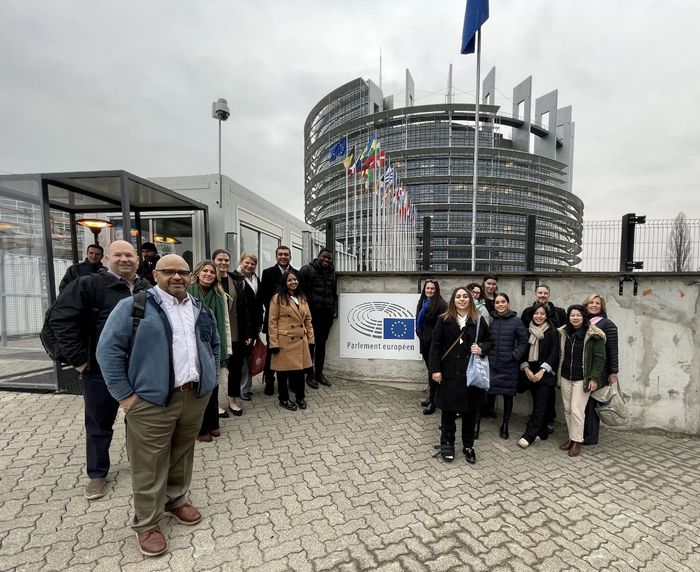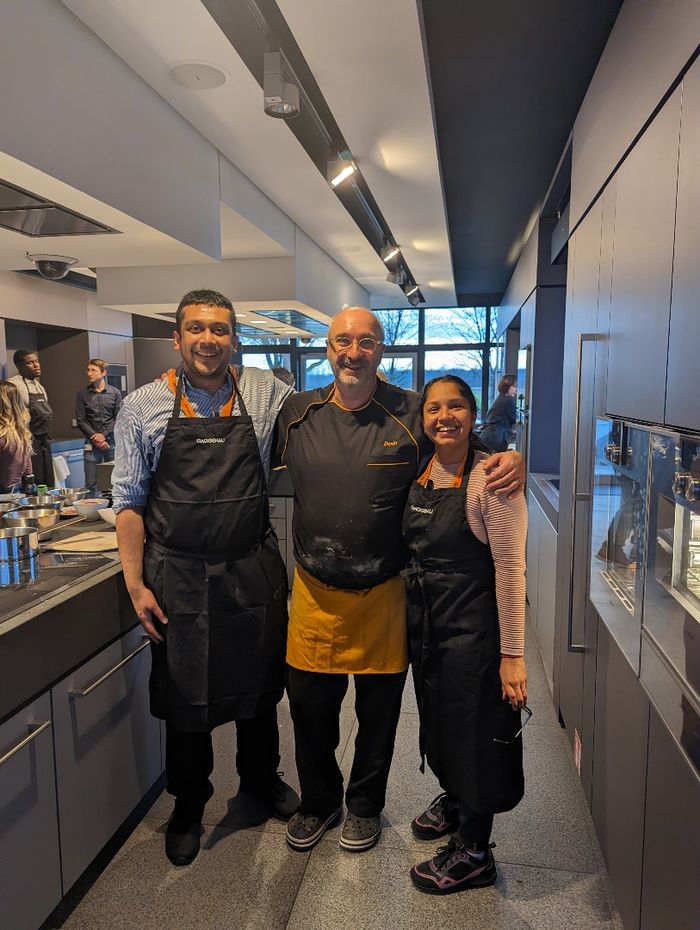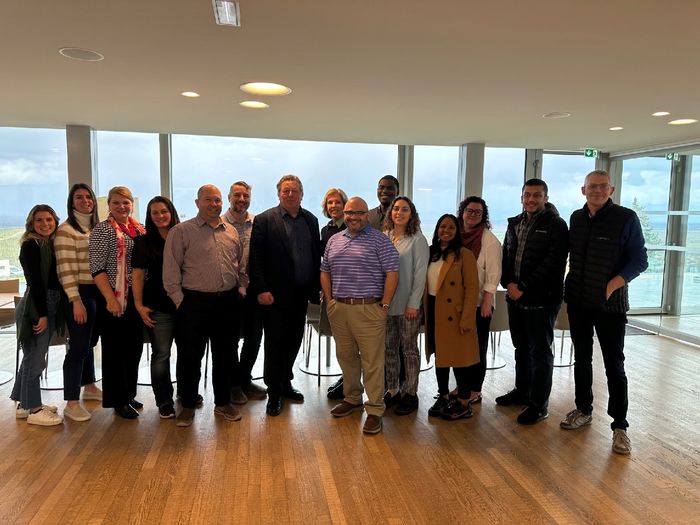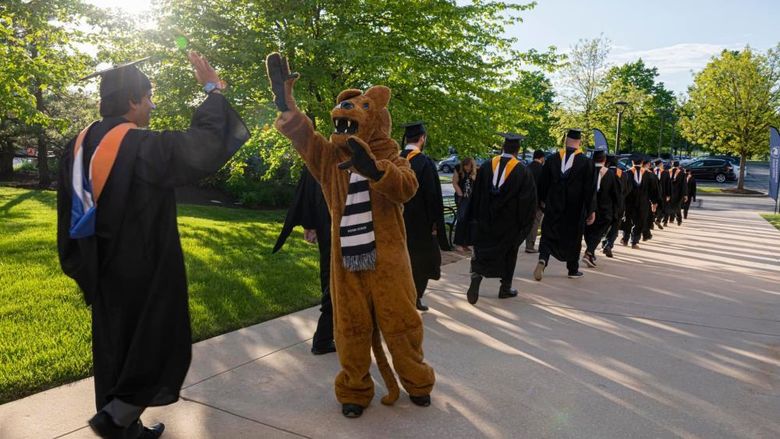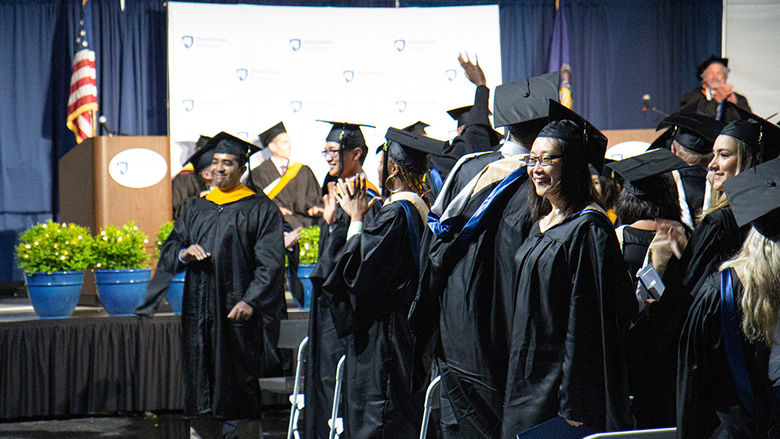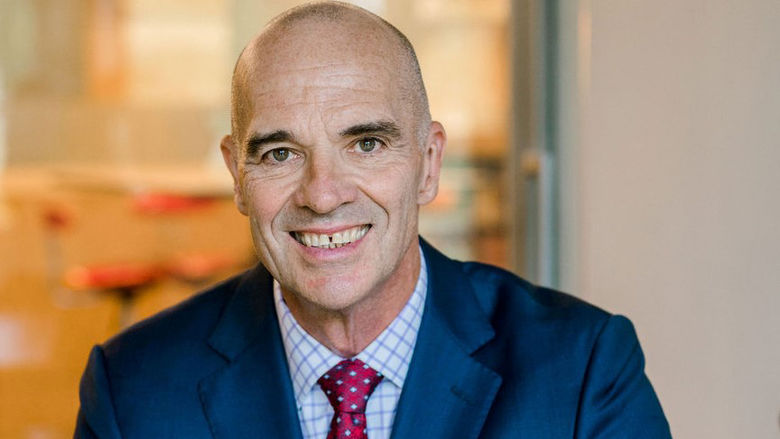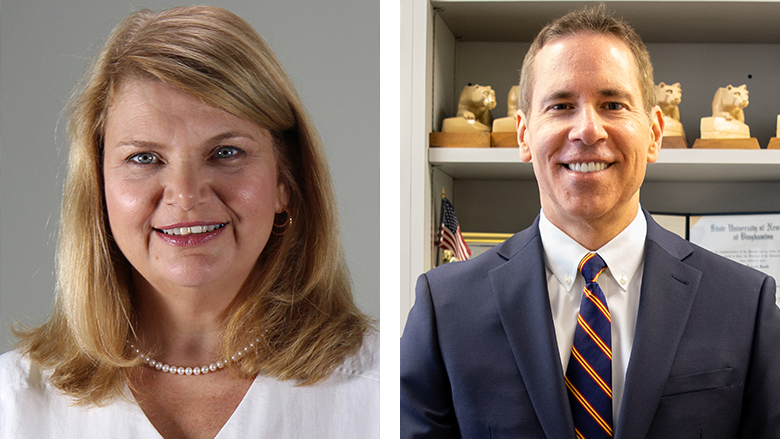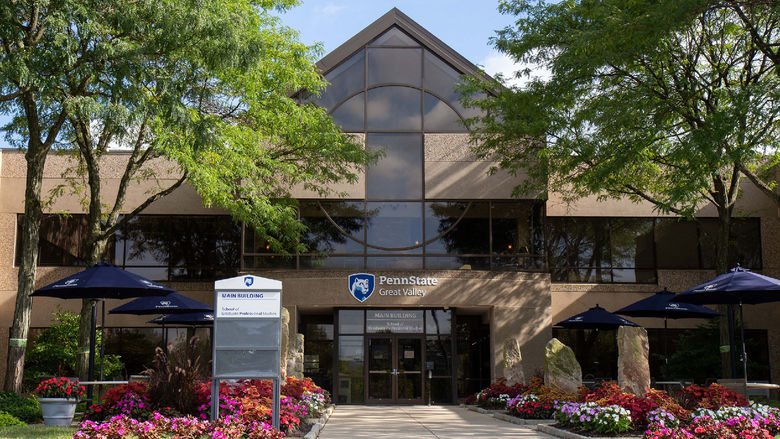
Penn State Great Valley students visited the European Parliament in Strasbourg, France, as part of the week-long trip in their Global Immersion course.
Penn State Great Valley’s MNGMT 897 Global Immersion course trip to Strasbourg, France, took a while to get off the ground — literally. The course was first offered in spring 2020, but, due to the COVID-19 pandemic, the international travel component was canceled just three days before the class was set to leave the United States.
Three years later, Great Valley was able to hold the course with a successful trip abroad.
Last month, Great Valley students in the MBA, Master of Leadership Development and Master of Engineering Management programs enrolled in the course examined sustainable business practices, innovation and the design of work in several organizations on a trip to France, Germany and Switzerland.
Denise Potosky, professor of management and organization, had been collaborating with colleagues at the École de Management (EM) Strasbourg since working there as a Fulbright (Alsace Region) research scholar in 2011.
In the 2020 iteration of the course, Potosky was able to arrange virtual tours, presentations and question-and-answer sessions with many of the companies her class had planned to visit. Once international travel associated with Penn State Global’s embedded programs resumed, Potosky and Penn State Great Valley staff were finally able to start planning the next graduate-level global immersion trip.
“I’m thrilled to recognize what an accomplishment this course is, even the 2020 version,” Potosky said. “It’s the immersion experience, the opportunity to visit some places and gather new perspectives, virtually or in-person.
The trip was partially funded through the Warren V. Musser Travel Fund for Entrepreneurial Studies. Established by Linda Hogan and the now-late Gerald Hogan in 1999, the fund is designed to broaden international experiences and opportunities for Penn State Great Valley students.
Strasbourg provided the perfect location to do so: The city is a cultural hub and has been called the “capital of Europe,” as it houses the European Parliament, one of the many organizations the group visited. Located in the Alsace-Lorraine region on the France-Germany border and less than 90 miles from Switzerland, Strasbourg offered easy access to a number of business organizations and sightseeing opportunities.
“Strasbourg, France, proved to be a destination that exceeded all my expectations,” said Jainam Gandhi, a student in the engineering management program. “The city's unique blend of French and German influences created a cultural tapestry that was both enchanting and diverse. Strolling through the picturesque streets of La Petite France, admiring the grandeur of the Strasbourg Cathedral and engaging with the warm and welcoming locals were highlights of the trip. The seven days spent in this vibrant city were truly transformative, and I left with cherished memories and a deep appreciation for Strasbourg's captivating charm.”
Talk of the pandemic was minimal—the early days were especially devastating for the Alsace region—but Potosky and her students could clearly see their hosts’ enthusiasm at hosting in-person guests. For many of the organizations, the Great Valley group was one of the first since the pandemic.
The class had a full schedule, with visits including:
- The Bank for International Settlements, in Basel, Switzerland, which supports central banks worldwide. The group enjoyed presentations and question and answer sessions with several leading economists. The timing was ideal for in-depth discussions — the recent banking crisis started just a few days later.
- Gaggenau, a German manufacturer of high-end kitchen appliances. As part of the site tour, the group participated in a cooking class with a trained French chef. Three years earlier, the company’s brand manager provided Great Valley students with a virtual walkthrough of the closed factory, taking his tablet as far as WiFi would allow. He noted that he was delighted to repeat the tour and “meet Penn State face to face” this time around.
“It turns out, that was his first time doing a virtual tour,” Potosky said. “When we met in person, he mentioned, ‘Do you know, after that, we started doing virtual tours? Now we actually have a virtual tour option for some of our vendors.’”
- Maison Joseph Cattin, a winery that has been family-owned and operated for more than 300 years. The class toured the expansive estate from the vineyards to the wine cellars while learning about the wine-making process. While the group enjoyed a wine tasting, CEO Jacques Cattin Senior walked by and agreed to take a photo with everyone. Later, the visit coordinator reached out to Potosky asking for permission to use the group photo in the winery’s future social media posts.
- Roche Pharmaceuticals, a multinational healthcare company based in Basel, Switzerland, which hadn’t been on the 2020 course’s agenda. In fact, Roche usually restricts site visits to science programs, but was eager to host the Great Valley group because of their interest in sustainability, innovation, and design of work— subjects that Roche is particularly proud of.
- WeberHaus, a German company that builds sustainable modular homes. While the group couldn’t tour WeberHaus’ factory, they were able to walk through some of the houses, which ranged in price from 300,000 Euros to over 3 million Euros. All were outfitted with solar panels and many had other design features with sustainability and changing climates front of mind.
With the trip behind them, the students are now focused on finishing comparative analyses of American organizations with the European companies they visited. Three student teams will share their findings at a poster presentation in the campus’ Knowledge Commons on April 19 at 5 p.m.
The event is free and open to anyone interested in learning about different business approaches to leading, adapting, and working; viewing the students’ photo travelogues; and hearing more about the amazing educational experience.
